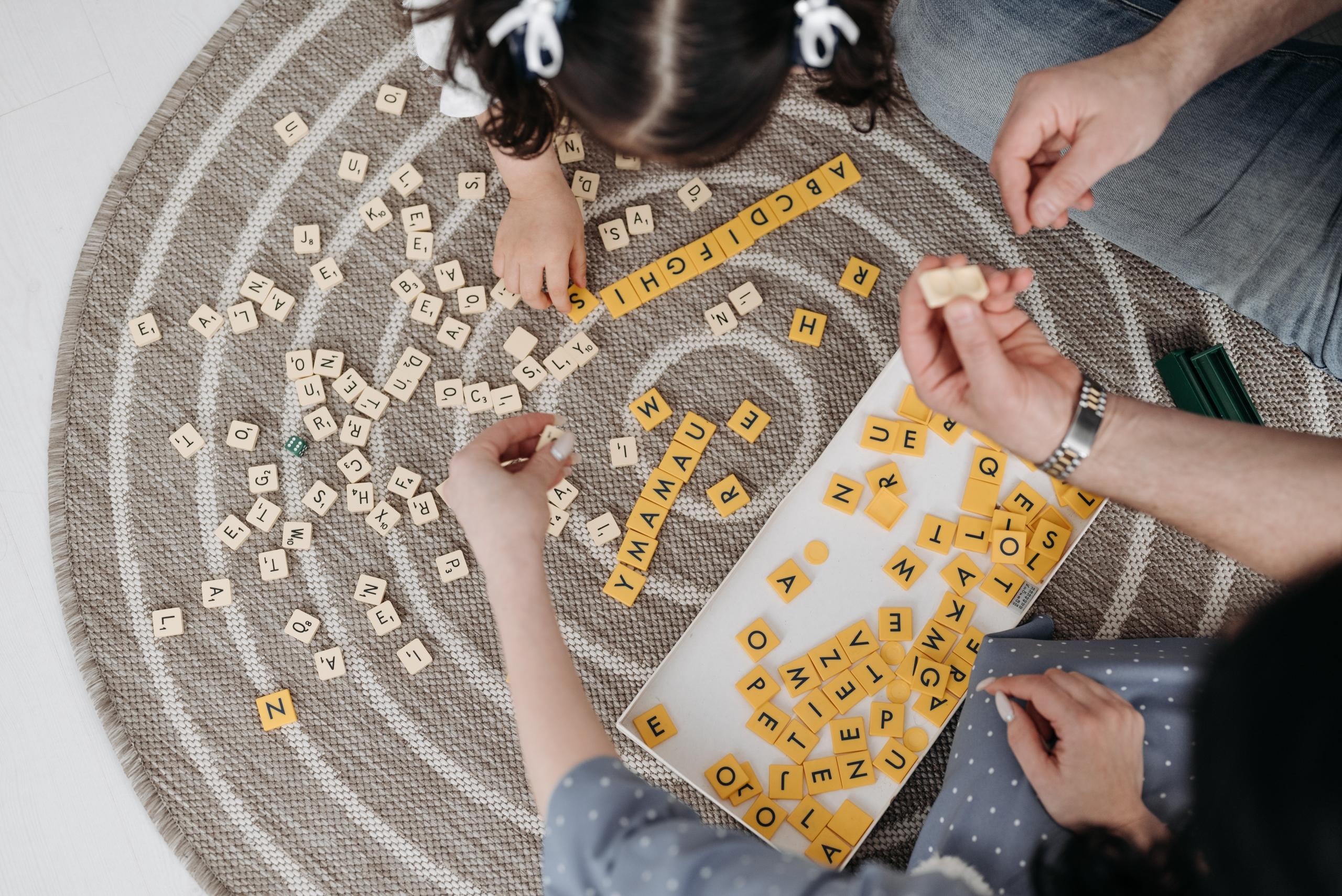Afrikaans Spelling Made Easy
- Afrikaans words are usually written as they are pronounced.
- Letter combinations that change their sound depending on the word do not exist.
- Pay special attention to diphthongs and rounded and unrounded vowels.
- Many long compound nouns exist. A good idea is to break these words up into sound groupings so you pronounce them correctly.
English speakers will be happy to know that the spelling of Afrikaans words is nowhere near as difficult as that of many English words. English spelling, since it is derived from a number of languages, is not phonetic. What is very interesting, though, is that, since both languages are of Germanic origin, there are actually cases where entire sentences and even entire poems have been composed to be read in either English or Afrikaans.
Afrikaans, unlike English, is a phonemic or phonetic language. So, anyone wishing to learn Afrikaans, will find that Afrikaans words are spelled in the way they are said, with a few exceptions.

Help Yourself Achieve Afrikaans Proficiency
Whether you’re learning Afrikaans at school, through an Afrikaans Second Language course or via a private Afrikaans teacher, you will need to display dedication and discipline by engrossing yourself in self-study, outside of class time.
Use this time to work on any areas of difficulty and identify revision methods that will work best for you. One important step, to stress-free exams and help you achieve academic success, is to learn Afrikaans online.
Below follow a few suggestions to overcome major obstacles to spelling words in Afrikaans.
Make Notes of the Most Difficult Words
If you’re a Dutch speaker, you may find spelling words in Afrikaans far easier than an English-only speaker. Once you have started the process of speaking Afrikaans, pronouncing its words, in particular, you will find it easier to read and write it, as the spelling is, generally, phonetic.
It would be a good idea for you to make a note of any words which regularly trip you up. This will help you greatly by improving your spelling and boosting your Afrikaans writing skills.
Once you’ve mastered the pronunciation and spelling of a particular word, cross it off your list. Also, if you come across any words that are unusually spelled, add them to the list in your notebook.
Keeping a note of your progress will help to keep you motivated about learning to speak Afrikaans.
Easily find Afrikaans lessons when you search for a tutor on Superprof!
Are There Tricky Letter Combinations?
Afrikaans does not have difficult letter combinations, like the infamous ‘o-u-g-h’ combination in English. So, you won’t have to categorise words and construct lists to help you memorise words such as tough, bough, though and through.
Silent letters only really occur in words that have come across into Afrikaans directly from English or Dutch, as is the case with the silent P in psigiater (psychiatrist).
The Afrikaans language is phonetic, so words are pronounced, pretty much, as they are written.
The key to pronunciation and spelling is knowing how Afrikaans letters are said out loud.
Use Superprof to find good grade 1 Afrikaans lessons in South-Africa here.
Since silent letters are not really an issue in Afrikaans, words with the ‘kn’ sound, for instance, are pronounced as such. The ‘k’ is said aloud, along with the ‘n’ as one sound, as in ‘knie’ en ‘knop’.
English does not have an equivalent sound, so this is one to be practised, a lot, maybe with the help of an Afrikaans-speaker.
Practice cannot be over-emphasised, as you don’t want to blurt out words in the wrong way in a conversation or totally misunderstand your host. So, it's important for you to learn as much as you can about Afrikaans’ rounded and unrounded vowels, which, with a subtle difference in pronunciation can cause a word or sentence to take on a completely new meaning.

Examples of these are:
- ‘ee’ used in ‘leen’ (borrow) as opposed to ‘eu’ in ‘leuen’ (lie/ fib)
- ‘i’ in ‘mis’ (mist or miss) and ‘u’ in ‘mus‘ (cap)
- ‘ie’ in ‘mier’ (ant) and ‘uu’ in ‘muur’ (wall)
- ‘y/ei’ in ‘ly’ (lead) and ‘ui’ in ‘lui’ (lazy).
Grouping is a great method to help you pronounce Afrikaans words correctly, as many Afrikaans words may be a combination of words, such ‘badkamervenster’ (bathroom window) and ‘verkeersbeampte’ (traffic officer).
It would be a good idea to break the words up into sound groupings like: bad – kamer – ven – ster and ver – keers – be – amp – te. This would make saying these words so much easier and help you avoid mispronunciation.
Apps That Can Help With Afrikaans
Here are some apps that can help you with learning Afrikaans whatever your current level:
- AfrikaansPod101
- Simply Learn Afrikaans:
- Clozemaster
- Mondly
- Learn Afrikaans Daily
- Ling
There is now a spelling and hyphenation checker for 10 of South Africa’s official languages, including Afrikaans.
The app covers indigenous languages and therefore excludes English. however, you’ll be happy to learn that IsiZulu, IsiXhosa, Sepedi, Xitsonga, SiSwati, IsiNdebele , Setswana, Tshivenda and Sesotho are all included.
The Spelling Checkers for South African Languages tool was created by the Centre for Text Technology at the North West University, and is available to all for free. It works with Microsoft Office Suite and will correct spelling, typing and hyphenation errors in your chosen local language. It even sugggests alternatives for any words that it cannot recognise.
You can download this helpful resource from the South African Centre for Digital Language Resources.
For simply checking that you're using the right word in the right context, there's Google Translate (or Google Vertaal) which provides translations of words and phrases between Afrikaans and over 100 other languages.
Self-Testing
The best way to succeed at spelling words in Afrikaans is to test your skills regularly. Reading, taking online quizzes and working through language exercises will help you identify problem areas and will consolidate what you have already learned.
You can, for instance, set yourself a weekly target of about 10 words per 7-day week, which would be a wonderful goal to work towards.
Over this period, you can make use of letter groupings and practise those to see what appears to be correct.
You should also check on your daily progress by making use of the ‘look, cover, write, check’ method.
That means that you would look at the word which you wish to spell, cover it, attempt to write it and then check its spelling.
Take exceptional Afrikaans lessons in George on Superprof.
School Your Brain with Regular Afrikaans Practice
When learning a new language, there isn’t time to slack. You’ve got to keep your nose to the grindstone.
Learning all the nuances and pronunciation, in particular, is all about keeping your language skills up to date!
When considering the spelling of Afrikaans words, it is important that you expose yourself to written Afrikaans and literature, while you also spend time practising your Afrikaans writing skills.
For those learning Afrikaans as a second language, as well as people who speak it as a home language, reading is a wonderful way to grow your vocabulary and get used to the way that the language ‘looks’.

There is a way for you to get used to many the spelling of many Afrikaans words, without actively focusing on spelling as such.
For example, you could regularly lose yourself in a bit of Afrikaans literature.
Always having an Afrikaans book available, wherever you go, will ensure that you keep your Afrikaans skills current, between classes, while you learn and enjoy the culture of the language.
A very important step to take is to read aloud. It is important for you hear yourself speaking a new language, al klink dit skeef en krom* (*even if it sounds bizarre).
Since you don’t know how you should sound, it would help for you to ask for help from a native speaker, who will listen to the way that you pronounce words, helping you place stresses where necessary. This will put you in a position to avoid continuing with the mispronunciation of words and, subsequently, having to unlearn them.
Your Afrikaans “listener” will pay close attention to your enunciation and correct you as you go along.
Since one of the best ways to learn is to take in information through as many different ways as possible, you can get ahead with spelling words in Afrikaans, by simply giving it a try. You will be pleasantly surprised that it might not be very difficult.
This way of revising spelling isn’t planned, but forms an important of polishing your Afrikaans skills.
Whenever you write words, sentences or even paragraphs in Afrikaans, you will encounter special spellings which will pop up.
You may be tempted to gloss over these difficult words and, simply, continue your writing, but you will discover that not dealing with the issue as soon as it arises, may cause it to remain unresolved. It’s best to deal with issues immediately; note down the words you have difficulty with and go back to them, at the end of your session.
As a next step, write down more than one way to spell a word and gauge which one looks ‘most correct’ to you. Next, use a dictionary, bilingual or monolingual, to see how close to correct you were.
This method of trial and error will cause you to critically consider how spelling patterns work in Afrikaans.

Having Fun is the Name of the Game
Nobody wants to watch, read or learn something that is dull, right?
Ask any learner and they will tell you that they love the classes most where they have fun. So, to improve your Afrikaans spelling, why not play a game of Scrabble?
This will help boost your spelling ability and confidence in using Afrikaans, in a fun way. Play the game with a few Afrikaans native speakers and have an Afrikaans dictionary available.
Boggle is another fun word game for anyone who wishes to spruce up the rapid-fire spelling skills. Players shake up a set of lettered dice, which remain within a covered plastic tray. Once the letters have settled, a 3-minute sand timer is activated and players, privately, write down as many words as they can decipher. The letters used have to be adjacent to one another. In addition:
- Each letter has to be a diagonal, vertical or horizontal neighbour of the letter before it;
- No letter cube can be used more than once in a word; and
- No hyphenated or capitalised words are allowed.
The winner of a round is the player who has listed the most words, which have to exist and have to be spelt correctly.
Boggle is truly a fun way to learn Afrikaans and improve your spelling and vocabulary!
Another, not mentally taxing activity is learning Afrikaans while sitting in front of your TV.
This is a great way to hear the Afrikaans language spoken and, if you have the luxury of subtitles, you will be able to get a sense of what the storyline is.
All in all, this learning activity may appear to be passive, but it will attune your ear to how Afrikaans is spoken, and how particular words are pronounced and will help with your spelling as well.
As you can see, there are several ways to go about learning Afrikaans. If you still feel a bit of trepidation or need assistance with particular words and phrases or you want to step your game, contact a private Afrikaans tutor on the Superprof website. On the Superprof site, you can find face-to-face or online Afrikaans lessons. Once you've found your ideal tutor, the sky’s the limit!
Geniet jou leer! (Enjoy your learning!)
Summarise with AI:
























